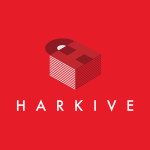
Welcome to Harkive 2022. Thanks for visiting the website and for showing an interest in the project. This post should tell you everything you may need to know about the project.
What is Harkive?
Harkive is an annual online research project that gathers stories about How, Where and Why people listen to music across a single day. Since launching in 2013 the project has gathered around 10,000 stories, from people all over the world. This year Harkive takes place on Tuesday 19th July – We’d love to hear your story.
The project is interested in how music plays its part in your day on 19th July. Which technologies, formats and services you use, the places you find yourselves in, how music accompanies you as you move through your day, and – of course – how music makes you feel.
How do I get involved?
Joining in with the project is easy. You can do so simply by adding the #harkive hashtag to your music-related posts on Twitter, Instagram and Tumblr. Alternatively, if you want to write something a little longer, you can email it to us, or send it via this online form. Stories are also accepted as posts on the Harkive Facebook wall.
You can post as many entries as you like across the day, and you can write as much or as little as you like. Feel free to include photos, links and other digital media. There is more detailed information on how to tell your story here. You can also read some example posts that have been collected in previous years, from musicians, writers, technologists, promoters, and others.
Why does Harkive gather this information?
Between 2013 and 2021, Harkive was part of research undertaken by Craig Hamilton in the Birmingham Centre for Media and Cultural Research at Birmingham City University. His research explored the cultural, technological, economic and social factors surrounding popular music consumption in the digital age, and his particular interest was and remains the role digital, data and internet technologies play in the ways we listen. You can find more detailed information about the research ethics of this work here. To see more of Craig’s work, visit his website.
In December 2021, Craig left his role at Birmingham City University for a new challenge outside of academia. He is currently in discussions with academic colleagues about the possibility of handing over the future running of Harkive as academic research to them. However, with 2022 being the 10th annual instance of the project, Craig felt it was important the project continued this year for the sake of continuity. The data gathered in 2022 will be added to that gathered in previous years and by contributing your story you are indicating that you allow the data to be analysed at a future point. If you have questions before proceeding, please contact info@harkive.org
Need more information?
If you have any questions about Harkive, or the research surrounding it, please feel free to email info@harkive.org or say hello on Twitter (@harkive)
Join in!
Harkive is looking forward to once again hearing your stories this year. Please do consider joining in, and please do tell your friends, share this post, and generally spread the word.
Thanks!
